Podcast
Questions and Answers
What aspect of algorithms should you pay attention to when studying for your CS 201 final exam?
What aspect of algorithms should you pay attention to when studying for your CS 201 final exam?
- The color-coding of the algorithm
- The number of lines of code in an algorithm
- Time complexity and space complexity (correct)
- The font size used in writing the algorithm
Which notation describes how the runtime of an algorithm grows as the input size increases?
Which notation describes how the runtime of an algorithm grows as the input size increases?
- Underline notation
- Big O notation (correct)
- Italic notation
- Bold notation
What are data structures in computer science used for?
What are data structures in computer science used for?
- Organizing and storing data (correct)
- Changing the color scheme of a computer
- Randomly selecting data to display
- Determining the font style on a webpage
Why should you familiarize yourself with arrays and linked lists for your CS 201 final?
Why should you familiarize yourself with arrays and linked lists for your CS 201 final?
What is a key aspect to focus on when studying trees, graphs, and hash tables?
What is a key aspect to focus on when studying trees, graphs, and hash tables?
Which languages are commonly used in CS courses for algorithm implementation and data structure manipulation?
Which languages are commonly used in CS courses for algorithm implementation and data structure manipulation?
What is essential to understand about Java and JavaScript in the context of CS?
What is essential to understand about Java and JavaScript in the context of CS?
Why are relational databases important to learn about?
Why are relational databases important to learn about?
What is a key aspect of software engineering that involves studying software design patterns?
What is a key aspect of software engineering that involves studying software design patterns?
What should you focus on to improve your algorithmic thinking and data structure implementation skills?
What should you focus on to improve your algorithmic thinking and data structure implementation skills?
Flashcards are hidden until you start studying
Study Notes
Crushing Your CS 201 Final: Algorithms, Data Structures, and More
As you crack open your Computer Science 201 textbook for your final exam, you might be wondering how to tackle the complex concepts you've been learning. This article breaks down the key areas of your course and offers strategies to help you succeed. We'll focus on algorithms, data structures, programming languages, databases, and software engineering.
Algorithms
An algorithm is a step-by-step recipe for solving a problem. When studying algorithms, pay attention to their time complexity, space complexity, and whether they are deterministic or probabilistic. To excel in your exam, focus on analyzing algorithms' efficiency and how they work with various data structures.
- Time complexity: Understand the big O notation, which describes how the runtime of an algorithm grows as the input size increases.
- Space complexity: Learn how algorithms use memory resources.
- Deterministic vs. Probabilistic algorithms: Recognize differences between algorithms that always produce the same output and those that may change output with each run.
Data Structures
Data structures are containers for organizing and storing data. To perform well in your CS 201 final, focus on learning the basic data structures and understanding their properties, such as efficiency and space utilization.
- Arrays and linked lists: Familiarize yourself with these fundamental data structures.
- Trees, graphs, and hash tables: Study the properties and applications of these data structures.
- Dynamic data structures: Learn how data structures change in response to insertions and deletions.
Programming Languages
A strong knowledge of programming languages is essential in CS 201. You'll need to understand the syntax, semantics, and basic constructs of languages used for algorithm implementation and data structure manipulation.
- Python and C: These are two of the most commonly used languages in CS courses. Familiarize yourself with both.
- Java and JavaScript: Learn how these languages are used for web development and algorithm implementation.
- Language fundamentals: Understand how to use loops, conditionals, and functions.
Databases
Databases are the foundation for storing, managing, and retrieving data in applications.
- Relational databases: Learn how to design and manipulate relational databases using SQL.
- NoSQL databases: Understand different types of NoSQL databases, such as key-value stores and graph databases.
- Transactions and concurrency: Study how databases handle multiple simultaneous operations.
Software Engineering
Software engineering is the process of designing, developing, and maintaining software systems.
- Software design: Learn about software design patterns and their applications.
- Algorithms and data structures: Study how algorithms and data structures are used in software development.
- Software testing: Understand testing principles and techniques, such as unit testing and integration testing.
Tips for Crushing Your CS 201 Final
- Practice problem-solving: Work on coding challenges and exercises to improve your algorithmic thinking and data structure implementation skills.
- Review key concepts: Frequently review the fundamentals of algorithms, data structures, programming languages, and databases.
- Understand the theory: Learn the theoretical foundations of the concepts you are studying.
- Read beyond the syllabus: Explore additional resources, such as books, blogs, and online forums, to gain a deeper understanding of the topics.
- Practice writing clean and readable code: Code that is easy to understand and maintain will help you in your development projects and exams.
Remember, the CS 201 final is an opportunity to showcase your understanding of the core concepts we've covered. With a solid grasp of algorithms, data structures, programming languages, databases, and software engineering, you'll be well-prepared to ace your exam. Good luck!
Studying That Suits You
Use AI to generate personalized quizzes and flashcards to suit your learning preferences.




